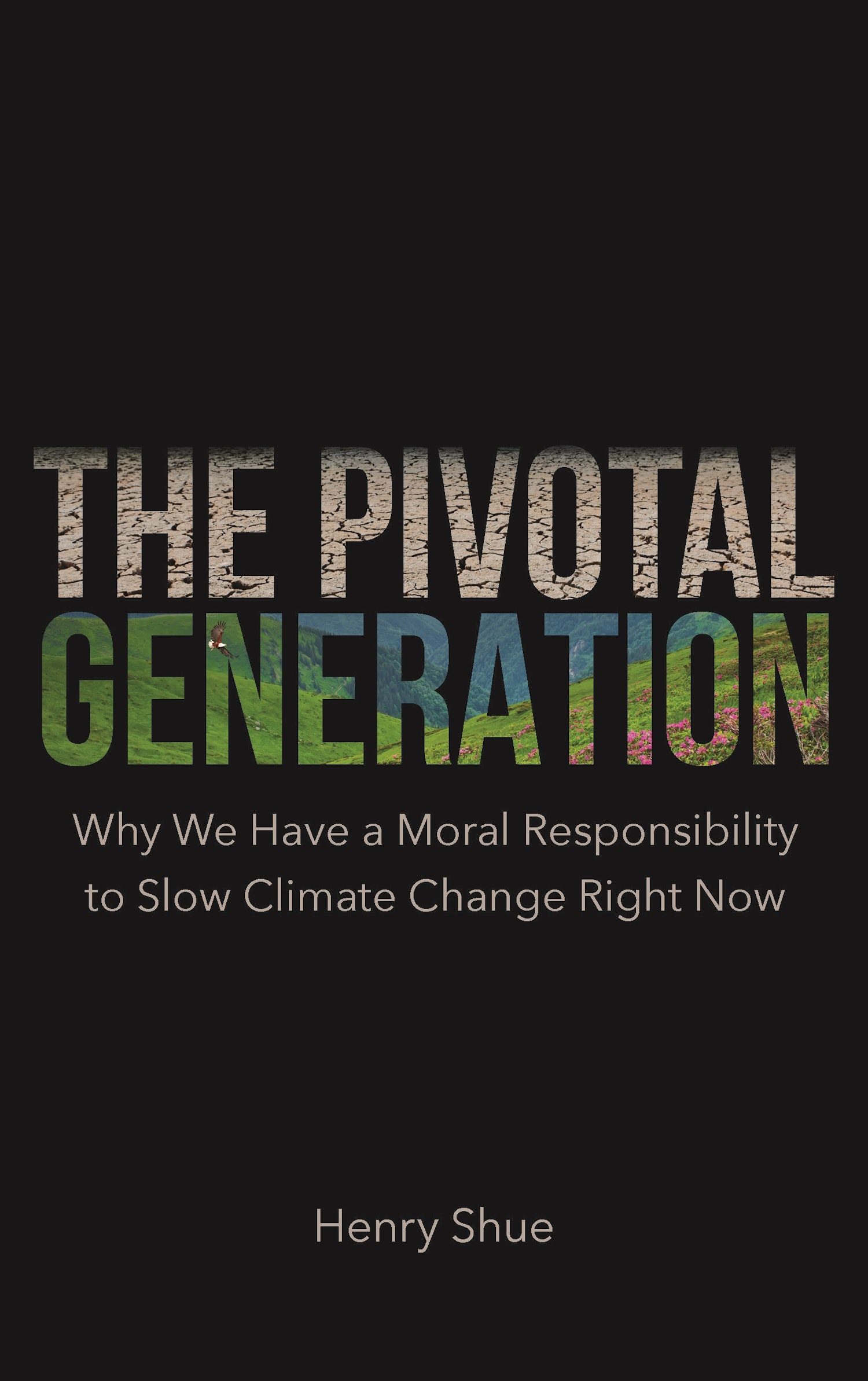 The Pivotal Generation: Why We Have a Moral Responsibility to Slow Climate Change Right Now, Henry Shue (Princeton, N.J.: Princeton University Press, 2021), 208 pp., cloth $27.95, eBook $27.95.
The Pivotal Generation: Why We Have a Moral Responsibility to Slow Climate Change Right Now, Henry Shue (Princeton, N.J.: Princeton University Press, 2021), 208 pp., cloth $27.95, eBook $27.95.
Why is it our generation’s burden to take responsibility for the ravages of climate change? Do those in wealthier countries have a particular moral responsibility toward billions of people living far from them—considering that these wealthy nations reaped the benefits of the Industrial Revolution but also contributed disproportionately to lasting climate damage—and if so, why and how much responsibility?
These are some of the questions tackled by noted political philosopher Henry Shue in The Pivotal Generation: Why We Have a Moral Responsibility to Slow Climate Change Right Now. Shue, who has been writing on climate change issues since the early 1990s, aims this timely book mainly at Americans and citizens of other affluent nations. Expanding on his earlier work, Shue uses the titular “pivotal generation” to refer to all of us alive at the current moment who must bring about nothing less than an “energy evolution,” eliminating the use of fossil fuels and carbon emissions entirely, to rival the Agricultural and Industrial Revolutions and mitigate some of their lasting effects. With the climate crisis now having become undeniable, The Pivotal Generation is an extremely practical look at our present moral responsibility to confront climate change.
The burden for this generation of bringing about the Energy Revolution, Shue argues, is justified by the unique historical circumstances that we currently inhabit and a resulting incomparable moral responsibility: we are fully aware, unlike previous generations, of the irreversible damage caused by carbon emissions, and, unlike future generations, we still have the time to act to prevent the absolute worst-case scenarios from transpiring.
Shue’s moral arguments on the need for urgent action are backed throughout the book by the latest data on climate science, including the danger of passing more tipping points such as the irreversible melting of the West Antarctic Ice Sheet. Building on his argument that the descendants of initiators and proprietors of industrialization should bear the heaviest costs in international negotiations on climate change, Shue uncompromisingly addresses the U.S. government’s stance that past emissions are not the basis for the present national responsibility to deal with resultant climate change—terming this “indefensible and in denial of reality.”
While acknowledging past and present inequalities of energy use, Shue puts the onus on both developed and developing countries—suggesting that carbon emissions need to decline sharply in the former but also should not go up by much in the latter. He also calls out several developed countries—particularly those with historical responsibility for climate change—for evading accountability, and highlights these countries’ negative responsibility to avoid further damage by making fossil fuels more costly without providing adequate alternatives for less powerful and lower-income nations.
Finally, Shue addresses the decades-long deception of the public by fossil fuel companies and the continued “final harvest”—companies claiming efforts to transition to net zero carbon emissions while selling as much fossil fuel as possible before then—in contravention of publicly signed agreements such as the 2015 Paris Agreement, as well as the continuing bailouts of and subsidies to these companies by their financial enablers: governments and banks and other financial institutions. Ending on an optimistic note, Shue argues that, despite all of the difficult necessary structural changes that lie ahead, the fossil fuel sector is also naturally faltering and ripe for disruption.
Making use of both easy-to-understand analogies and hard data, The Pivotal Generation is accessible to nonphilosophers and those unfamiliar with climate science. It is a much-needed moral wake-up call for today’s policymakers and a compelling affirmation for many who have already taken up the fight against climate change on behalf of future generations.
Maliha Khan was the summer 2022 editorial intern at Ethics & International Affairs, the journal of the Carnegie Council, and a final-year graduate student at The Fletcher School, Tufts University. Prior to graduate school, she worked as a journalist in Bangladesh with a focus on human rights issues including migration and refugees.
To access a PDF of this review, please visit Cambridge Core.
More in this issue
Winter 2022 (36.4) • Review
Victory: The Triumph and Tragedy of Just War
The central claim of Cian O’Driscoll’s new book, Victory, is twofold: first, just war theorists have paid insufficient attention to the concept, practice, ...
Winter 2022 (36.4) • Review Essay
But Is It Good Enough? Jus ad Vim and the Danger of Perpetual War
This essay reflects on the divergent arguments about limited force made by Daniel R. Brunstetter and Samuel Moyn in their respective monographs.
Winter 2022 (36.4) • Review
Fighting Machines: Autonomous Weapons and Human Dignity
In Fighting Machines, Dan Saxon draws on his extensive practical and academic experience and expertise in international law to argue why certain human responsibilities should ...